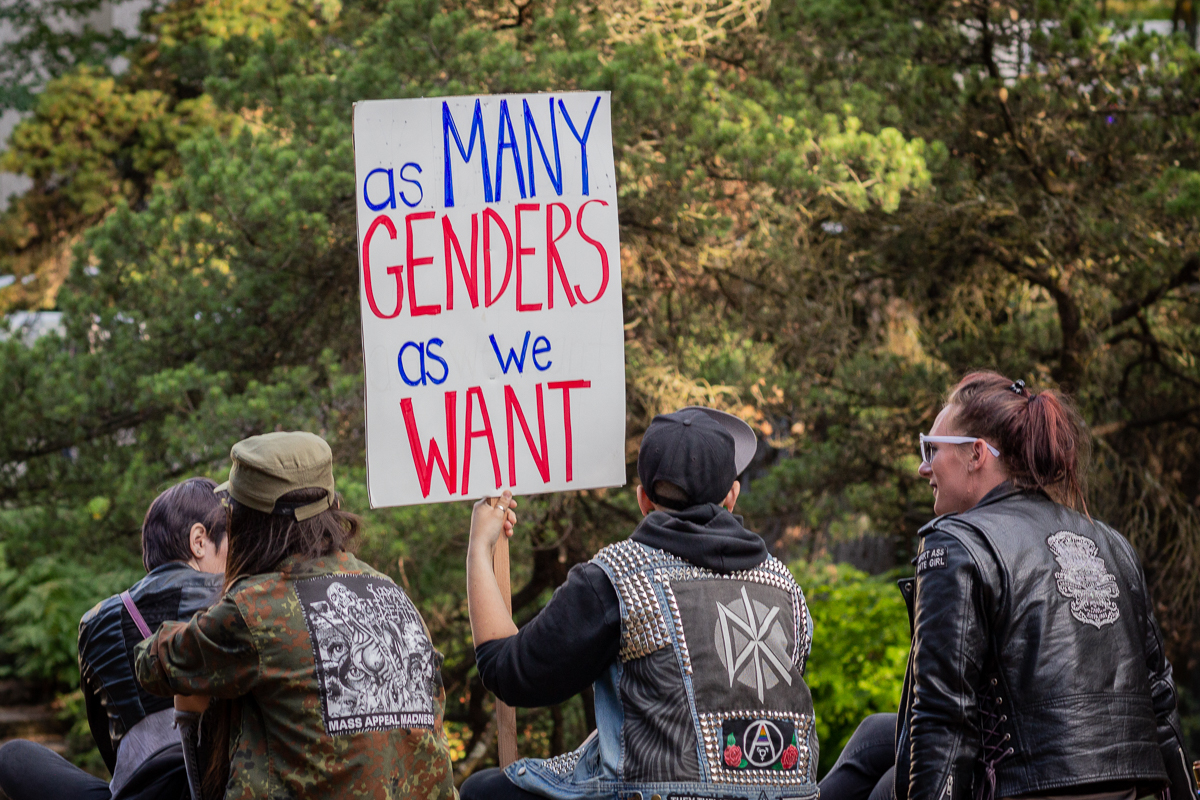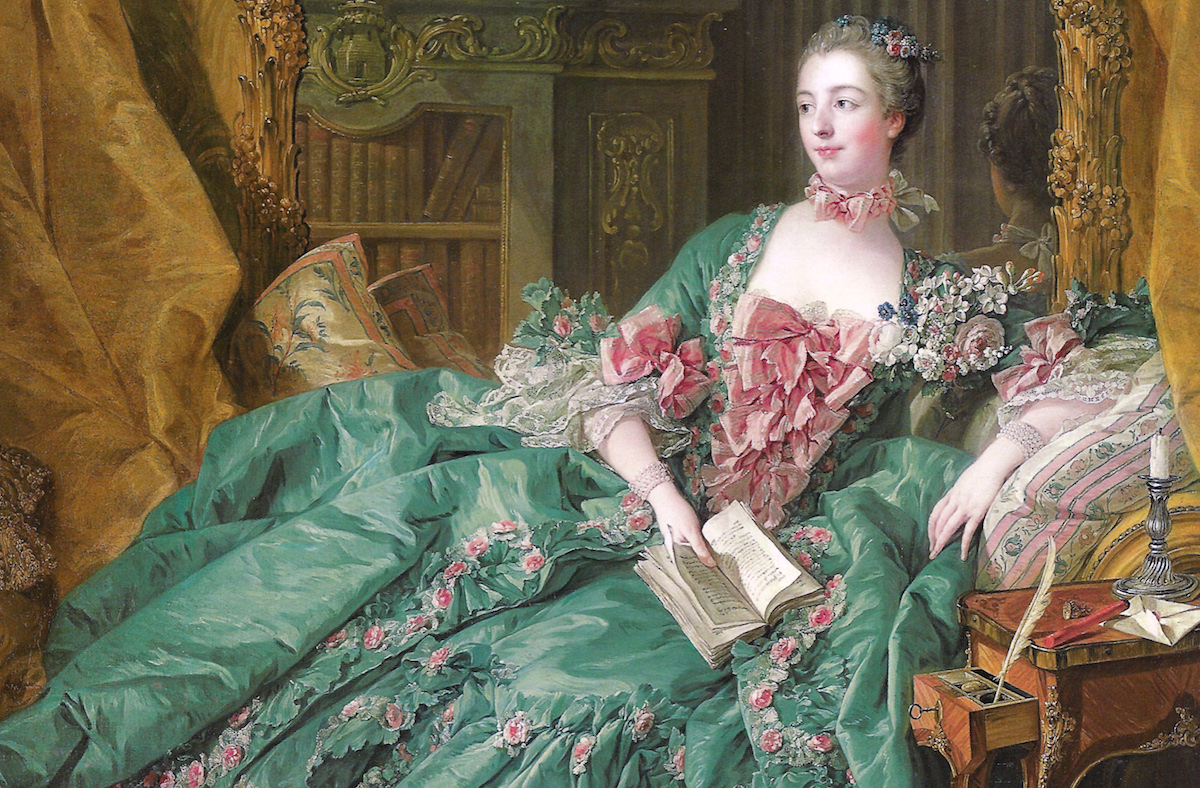Art
Writing for Quillette Ended My Theater Project
Do we really think our era is so fraught and divisive that we must abandon our principles in order to achieve something that we absolutely will not achieve if we abandon our principles?

It was suggested that I apologize, and that an apology might help. This wasn’t an assurance, but an idea—if I walked back what I had written, there might be a way forward. I looked around the table at these four women who knew me too well to believe that I would apologize for something I had written. Before each of us sat the full length script on which we’d spent several months collaborating. I’d formed this theater collective precisely to make a play based on a killer idea I’d had, and I’d asked each of these talented, thoughtful, intelligent, creative women to work with me.
We were only in the first few months of what was meant to be a year-long residency in a theater space in downtown Manhattan. What I wanted most of all was to develop this project. By the time it was suggested that I apologize, I knew full well that I wouldn’t, and that the project, the theater company, and the residency were all dead in the water.
At issue was an article I’d written for Quillette, entitled “The Transhumanism Revolution,” about three undercurrents of transhumanism presently circulating beneath Western culture: bio-hacking or grinding, AI, and trans gender ideology. I’d brought the article to the attention of my theater collective when it was published in July 2018, and to everyone else I knew via my social media feeds. However, it wasn’t until two weeks prior to what would be our final meeting, in October 2018, that the article made a modest splash in the downtown indie theater community of which we were a part. When it did, I let the collective know that some people were taking issue with my views on transhumanism, and that they should let me know if they wished to discuss it. The members of the collective were confused. Transhumanism isn’t exactly a household proto-philosophical concept. Instead of knocking me down, the women I worked with tried to reassure me. I waited.
The lack of heterodoxy in Western universities has been extensively documented. When I appeared on the podcast Cosmic Tortoise to discuss the article I’d written, the host asked why I would dig into trans ideology, when it is mostly localized on college campuses. But I argued that many of the extreme ideas that percolate in universities then boil over into the arts, and, in the arts, dogmatic positions on gender identity are now the norm. Trans ideology has been met with a loving embrace, complete acceptance, and fighting words for any who dares to disagree in public.
I have been writing on the issues of gender, gender identity, and trans ideology since the premiere of my play How to Sell Your Gang Rape Baby* *for Parts in 2013. Gang Rape Baby (as we nicknamed it) was directed by the same person who was now suggesting that I apologize. It was performed by me and another co-founder of the collective, produced by another member of the collective, and stage managed by another. In other words, we had all worked on this play which had not been shy about my refusal to adhere to or espouse orthodox ideas about gender identity, gender roles, or the notion that men can become women. The difference between that show and the work I was doing then and the work I have been doing of late, is that no one had complained before. No one believed that my radical feminist black satire about selling babies which result from gang rape for their organs was hurtful at all—not to babies, not to women who had been gang raped, not to transgender bosses who accidentally tuck their skirts into their panty hose, use women’s bathrooms, and get breast milk sack implants. Not to anyone.
In the arts community, as well as in universities, it is assumed that a specific gender, racial, sexual, or community identity determines opinions. It is widely believed that traditionally dominant identities produce opinions and ideas that must be considered suspect (i.e. those of the deplorable white women who voted for Trump), and taken with a tablespoon of salt. This is especially true when those ideas or opinions are interacting with ideas or opinions that are considered the purview of those whose identities have been historically disenfranchised. The higher up the privilege ladder you are perceived to be, the less you should have to say about any group occupying a lower rung. For example, my perceived identity as a cis straight white woman is a clear indicator that I should neither have nor express opinions about trans queer white men.

Women like me aren’t supposed to say that men aren’t women. We’re supposed to believe that some men are women. We’re supposed to believe that these men who really are women really believe that they are women, and that we should believe it too. Women like me are not supposed to speak about female erasure, because trans erasure is more important. Women like me aren’t supposed to express the opinion that womanhood is defined by more than mere appearances or performance. We’re supposed to defer to those men that really are women and respect their perspective of what it means to be a woman more than our own.
“You’re punching down,” my director announced from across the table, our scripts and a selection of snacks between us. She said that she’d been contacted my members of our theater community who had let her know that I had hurt them. These theater people wanted to make sure that she knew about the article I’d written and what people on social media were saying. The director reviewed the thread on my Facebook timeline from July, and determined for herself that I had participated in “trans erasure,” and hurt people by equating medical gender transition to rapidly growing trends in AI and body hacking.
In point of fact I wasn’t punching anyone. I was writing in an attempt to convey a somewhat complicated idea about what human beings are and what we are becoming. This is a topic that interests me greatly, along with the vexing questions of how we ought live. These questions have been hugely influential to my research, my art work, and my writing. They are the questions that had spurred the creation of this script and the theater collective I had co-founded to make it happen.
“You are cis gender,” she informed me. “You need to educate yourself.”
“I am not cis gender,” I replied.
Women like me are supposed to understand that we are privileged to be women in women’s bodies. Did I get that right? Privileged to be females who are perceived to be females? Is that it? Wait, privileged to be women who like being women? Maybe that’s it. We’re supposed to understand that it’s different for those who don’t like being in women’s bodies. Or who don’t like being in men’s bodies. I am supposed to understand this because I am a “cis gendered” woman.
For someone like me, who is identified as (as opposed to identifying as) a cis straight white female, to have ideas or opinions relating to trans ideology that are contrary to the progressive narrative recited by rote is already enough for me to be chastised by my community. I knew this, and I often kept quiet during conversations with others in the arts community when these topics arose. But, by espousing them in public, and then doubling down on social media, I had crossed a line drawn to keep my identity separate from certain contentious subjects.
If anything, it is the knowledge that I don’t identify with those things stereotypically female (high heels, makeup, being quiet while the men are talking) that has led me to believe that what society defines as belonging to the domain of women or the domain of men are not what make women and men what they are. Instead, it is our bodies that have the job of determining male and female, and the mind that is free to do as it pleases no matter the confines of the physical form. Yes, the physical form has its limits, and we ignore those limits at our peril. In college, I knew a PCP user who once uttered this truth: if there’s two of you, you can fly; if there’s one of you, well then you can’t fly. Because ideally one of the two will remember that the body has limits, and no flight capability.
“I don’t want to debate this with you,” my director said.
And that, of course, is the problem. No one wants to debate trans ideology. No one wants to talk about it at all other than to say it’s literally as glorious as unicorns shitting rainbows. I explained that I have no problem with pronouns, or bathrooms, or how people want to live, but that I don’t accept the identifier of “cis gendered,” I don’t think kids should be transitioned, and I don’t believe men can change into women or vice versa. I believe being a femme man doesn’t make you female and that men should be more accepting of their femme brothers. I argued that gender is performative and sex is innate, and that gender is not the soul, living somewhere deep inside us waiting to be realized.
“Don’t judge people,” my director advised, and went on to remark that I’d “really hurt people, you made them hurt, especially in a week where Trump said they didn’t have the right to exist.”
My exploration of the ideas behind transgender ideology was painful for people. But it was only a discussion of ideas. Because I had written about the ideas behind the social movement of individuals chemically and surgically altering their bodies so that they appear to be a member of the opposite sex, I was no longer welcome in the feminist theater company I had founded, and no longer welcome among those I had thought of as friends. Exploring a new idea in a longstanding philosophical debate regarding the interconnected nature of human mind and body was hurtful because it did not uphold the delusion that biological sex is malleable. I had committed apostasy against the new gender religion.

All of us around the table had attended liberal East Coast undergraduate universities, and had four graduate degrees between us, two of them held by a professor and a friend of over 20 years. This was an educated group. Stumbling into any downtown indie arts enclave will land you in the presence of enough degrees to warm the planet right out of existence. In the arts, bachelors degrees are standard, masters degrees are commonplace, and progressive orthodoxies are strictly enforced.
The basis of this enforcement is a kind of groupthink, derived from a politics of compassion, moral relativism, and privilege theory. Divergent opinions are not censored, they are self-censored. Artists who disagree do not speak up. To do so is to risk losing funding in an industry that relies almost entirely on philanthropic donations from organizations that routinely signal their virtue to one another, the artists they supposedly serve, and the progressive milieu at large. Artists who value their careers and industry friendships will not express views that put those things at risk. But I did. I knew what I was doing when I wrote it, although I must admit that I thought more highly of my intimate colleagues’ tolerance for controversy than was exhibited at our last meeting, or since.
Do we really think our era is so fraught and divisive that we must abandon our principles in order to achieve something that we absolutely will not achieve if we abandon our principles? It is neither reasonable nor possible to force everyone to believe a given ideology. People can be forced to espouse it, primarily through punitive measures such as imprisonment, blacklisting, gulags, etc., and social measures such as the denial of funding, denial of camaraderie, and denial of resources. But they can never be forced to believe it. It is to precisely this kind of ideological authoritarianism that my work has been opposed since I began writing.
The other women had been pretty quiet up until now. An old friend spoke up.
“Do you think you’ve done something wrong?” She asked.
“No,” I said.
“Then why would you apologize?” She asked.
“I wouldn’t,” I said.
And I won’t.






